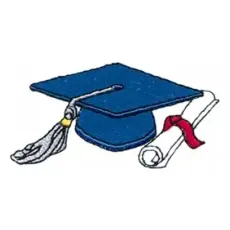Career Prospects
After your studies, you have the ability to think in a networked way and to recognise both diachronic and spatial cultural contexts thanks to multi-faceted, interdisciplinary archaeological knowledge and excellent methodological training with a high amount of practical experience. With a Master of Arts in Medieval and Post-Medieval Archaeology, varied career opportunities open up in state and municipal institutes and authorities, in museums, and also in the private sector.
Our graduates work in heritage conservation, in museums, in international research projects, in excavation companies or in the private sector in the field of culture. Thanks to a purposeful choice of courses in the distribution elective component, learning one or more languages, completing a stay abroad and consolidating the knowledge gained in different bachelor’s degree programmes (e.g. in Archaeology, History or Art History), our graduates are optimally prepared for careers in Germany or abroad.
State archaeology departments, urban archaeology or private excavation companies – organise, lead and carry out digs around Germany
The medieval and post-medieval eras have been the subject of growing archaeological interest for decades, so it is to be expected that the demand for graduates of the programme in Medieval and Post-Medieval Archaeology will increase. It is estimated that around 90% of archaeological heritage work today concerns archaeological objects from the medieval and post-medieval periods. In contrast to the majority of find sites from earlier periods, the existence of textual material, complex and often metre-high stratigraphic features, and new building structures pose particular challenges both in practice on site and in research communication.
The main field of work for graduates is first and foremost in the field of archaeological heritage conservation at the state level, and in regional and local authorities. Work at state offices and private excavation companies means seeing archaeological sites first hand. Alongside academic qualification, experience in organising and carrying out digs is also necessary here. Specialist heritage conservation knowledge is also increasingly required. Thanks to our practice-oriented degree programme with at least seven weeks of compulsory research and fieldwork placements, you are thoroughly prepared for routine excavation work in private firms.
Cultural communication in medieval and post-medieval archaeology – museums, cultural management publishers, and media
Do you want to curate the next state exhibition? Or perhaps you want to join the editorial team of an academic publishing house? Jobs in the museum sector, in publishing, in specialist journalism or in the field of cultural management require knowledge of how to present information for didactic purposes and how to communicate academic findings. In this case, how you handle finds and incorporate them into historical contexts is of particular importance. That’s why we offer hands-on practical training at archaeological sites, where you gain sound specialist knowledge on various categories of finds. Dealing with medieval and post-medieval ceramics is a particular focus of our group, but we also work with other types of artefacts, such as leather or non-ferrous metals. Our students also benefit from a large network of museums, archives, publishing houses and other academic institutes. This means you have good access to internships during your studies in order to gain your first professional experience in line with your interests. And, last but not least: we regularly curate our own exhibitions in which students are significantly involved.
Planning a career in academia?

Of course, the master’s programme in Medieval and Post-Medieval Archaeology also enables you to pursue doctoral studies in this field.
The intensive academic activity within Medieval and Post-Medieval Archaeology is particularly evident in the high number of qualification papers produced (doctoral and Habilitation theses).
![[Translate to 1 - english:] [Translate to 1 - english:]](/fileadmin/amanz/Bilder/Logos/Amanzlogo.png)